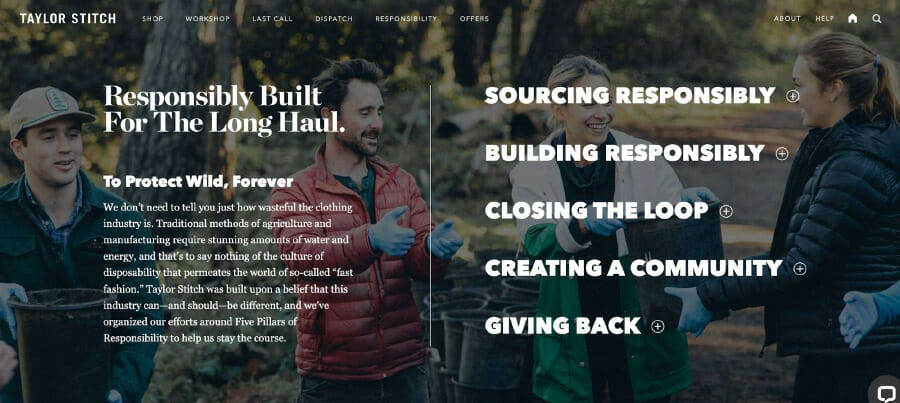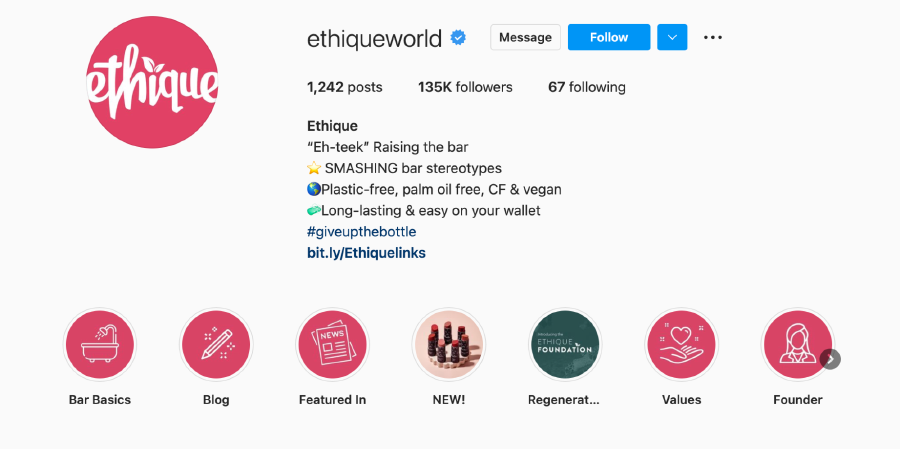Logistics
Industries
Technology & Innovations
E-commerce
E-commerce Fulfillment Services
Lease & Maintenance
Semi Trucks
Logistics
E-commerce
Lease & Maintenance
Buy Used Trucks

Picture this: It's 2008 and TOMS are all the rage. Everyone from middle-schoolers, high-schoolers, young adults, parents, and working professionals are wearing the colorful canvas slip-ons. But, besides their comfort and everyday style, what, exactly, made them so popular?
It is their story.
Founded by Blake Mycoskie, TOMS pioneered the one-for-one model: for every pair of shoes sold, one pair would be given away to a child in need. To date, over 100,000,000 pairs of shoes have been given away by the company.
TOMS connected so quickly and easily with their target audience due to two specific elements: they had a hot-ticket item and a pledge to support the greater community. The message of positive impact is what kickstarted their brand and allowed them to grow exponentially.
It wasn't just about style. It wasn't just about cost-friendly shoes. It was about people.
TOMS was one of the first shoe brands to utilize a purpose-driven CSR marketing strategy. The result? When customers think about TOMS, they think about the company's charity work and social purpose - giving them even more of an incentive to purchase products from the company.
In sum, it's corporate social responsibility marketing at its finest.
Before we dive in deeper, it's important to take a step back and understand corporate social responsibility as a whole.
CSR is the way a business self-regulates its product offerings to make a positive difference and make society better. Whether it's environmental initiatives, diversity, equity, and inclusion efforts, or giving back to the community, corporate social responsibility should be carefully considered by company leaders as well as included in a company's mission.
While implementing CSR efforts is not regulated legally, most companies set their own standards to hold themselves accountable and exceed expectations from both consumers outside the company, as well as internal stakeholders.
When you think of your favorite brands, what is it that draws you to them? For most consumers, it isn't one particular aspect, but the entire make-up of the company: their aesthetic, their message, and of course, their products.
In the TOMS example, consumers were drawn to the company by their pledge to benefit the greater society in need. Their customers knew they were making a difference, and it encouraged them to continue to purchase products.
TOMS incorporated socially responsible elements into their marketing strategy, and the response was overwhelming, with the common consumer and celebrities alike sporting their shoes. But, does this approach work for all brands?
It depends on a few different factors: your marketing campaigns (how you spread the word about your efforts) and how much it aligns with your business values and audience.
The tricky thing about CSR initiatives? They need to be authentic. Do your CSR efforts coincide with your company's business goals and values? If they don't, your audience will sense a disconnect, and it could push them further away from your brand.
If a brand has an effective CSR strategy in place, it will reflect positively on the company and its bottom line. In fact, most people are conscious of a brand's social and environmental impact, with 77% of customers motivated to shop at companies committed to making the world a better place.
All in all, developing corporate social responsibility goals and including them in your marketing strategy will expand your brand's reach to a more like-minded audience: customers who are paying attention to your brand image and how you interact with local communities.
Alternatively, if your brand chooses not to be socially responsible, only putting emphasis on sales and engagement without taking a step back to look at the broader picture, your reputation and revenue may suffer. Did you know that more than half of consumers (59%) are likely to stop purchasing from a brand that doesn't align with their values?
As an e-commerce brand, your marketing efforts play a huge role in connecting and establishing a dialogue with your audience, and ultimately, boosting your sales. If your company has a well-developed corporate social responsibility strategy, why not include it in your marketing assets?
As we mentioned, your corporate social responsibility efforts should align with your brand. This doesn't mean changing all of your logos to a rainbow color scheme during Pride Month - yet neglecting any other actionable LGBTQ+ initiatives throughout the year.
The cause that you choose to focus on in your CSR marketing efforts should be one that your company is actively participating in year-round. And, one that resonates with your brand values as well as your customers' values.
CSR marketing involves quite a few cooks in the kitchen. Not only will your marketing departments need to come together on messaging and delivery, your business leaders or investors will likely have the final say in what should/shouldn't influence public perception.
This means you'll need to have most, if not all, of your marketing teams and leaders aligned - which, let's face it, can be quite difficult if there are many differing opinions.
When it comes to corporate marketing, the competition is pretty extreme. There are thousands of similar brands trying to break through the noise - and the same goes for CSR marketing strategies.
Important initiatives that customers are looking for in brands, like sustainability and inclusion, can come across as a sort of meaningless buzzword - leading to a skeptical audience that question's your brand's integrity and commitment to the cause.
In order to differentiate yourself while upping brand equity, you'll need to have a well-rounded CSR campaign that opens dialogue with your customers and encourages more meaningful connections.
Successful socially responsible companies make it known to the public just how much they're planning on donating to their cause, what their goals are, how they're going to achieve said goals - and when they actually reach them.
To do this, your company will need to have clear KPIs in place and develop a strategy for effectively tracking the results of your efforts.
Plus, you'll need to understand how your customers and internal company members alike are receiving your CSR practices. This includes measuring employee retention, engagement on social media platforms, and tracking where new customers come from.
Brand voice is quite easily one of the most vital parts of a company. Formulating an engaging voice gives companies the opportunity to connect with their customers on a deeper level. It's no longer just a social post or an email, but rather a friendly conversation - one that your audience might miss if it suddenly disappears.
Focusing efforts on developing your voice to better resonate with your audience can only lead to increased customer satisfaction. Not sure where to start with brand voice? Try the below:
Social responsibility in marketing should fit well within your typical channel cadences. If you have a large Instagram presence, you may want to devote a series of Reels or Highlights to your mission and any FAQs. On your website, you should include a page dedicated to your CSR activities for your customers to browse.
Though effective, your marketing strategy need not be restricted to digital channels. A CSR marketing campaign can look like branded packaging, where your pledge is clear before your customers even open their order.
A few examples of CSR marketing in e-commerce fulfillment are:

A well-marketed CSR campaign doesn't leave out any details. In fact, it does the opposite. It presents initiatives in a compelling, concise manner. For example, yoga and lifestyle brand Alo commits to being 100% sweatshop free as well as eco-friendly.
On their site, they have a page dedicated to explaining their WRAP certification, which verifies their factories and offices operate in ethical and humane ways. Additionally, they explain how their headquarters are solar-powered and their plans for building a solar farm on their company roof:
Establishing a social responsibility stance is serious business. If you begin marketing your sustainability initiatives before you have actually acted (greenwashing), you run the risk of negatively impacting your overall brand equity - and losing your customers' trust.
Additionally, if your advertising portrays inclusion and equity of all races, however your leadership and greater team doesn't reflect the same sentiment (also known as race-washing), your customers may catch on that you're not fully invested, which could cause them to search for another brand that is.
Apparel brand Taylor Stitch created their "Five Pillars of Responsibility" to help their company stay the course in sourcing eco-friendly materials, operating ethical factories, and supporting charities.

Additionally, their "Workshop" program allows the brand to test new products with their audience, lowering the chances of overproduction and wasted materials.

The world's first-ever zero-waste, zero-plastic beauty brand, Ethique's entire existence revolves around their sustainability efforts and commitment eco-friendly efforts. The company uses only 100% sustainably sourced, vegan, paraben, sulphate, and cruelty-free ingredients. Plus, they're living-wage certified and donate 20% of profits to environmental charities.

The results? Ethique quickly built an army of very loyal customers who share the same moral values, which also feature prominently on their Instagram feed.

Much like TOMS' "one-for-one" model, Warby Parker utilizes a "Buy a Pair, Give a Pair" program, with over 10 million pairs of glasses distributed to date. Plus, their entire business model revolves around making affordable glasses accessible to everyone. The reality is that most frames bought at an optical office cost upwards of $300, where Warby Parker's start at less than $100.
Since the beginning of its lifetime, Levi's has driven ambitious corporate, social, and environmental initiatives to support their internal employees as well as benefit society. One needs only check out their values page to understand their history of social responsibility efforts.
Often, brands find their best sales and engagement within their own community. Instead of searching for new customers all the time, the focus becomes customer retention: keeping their most loyal audience members happy. One way to do this is through corporate social responsibility.
Consumers increasingly expect brands to speak out more and more on the social issues that occur daily in their lives. Developing a plan of action that resonates with your audience, and a CSR marketing strategy to help spread the word, will keep your customers coming back again and again to support your brand.